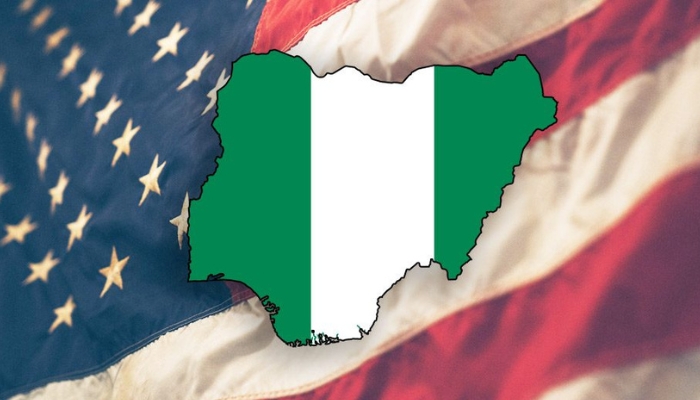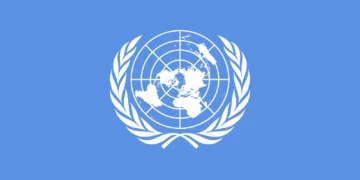The just-concluded presidential election in the United States of America (USA) was a delight to watch as it depicted the resilience of democracy in that country. It was characterised by high drama, excitement and apprehension.
The world practically stood with bated breath as the results started trickling in just a few hours after polls closed. Apart from a few places where elections were rescheduled because of some technical hitches, the US election sailed smoothly because of massive deployment of technology. And more importantly, the commitment of the people operating in an environment steeped in integrity and determination to get things right within the limits of human possibilities, proved unassailable.
The most striking was perhaps that most of the registered voters either voted in-person or by mail and there were less reports of electoral violence or voter suppression, or gangs stopping supporters of opposing candidates.
And within a few hours, former President Donald Trump, running on the platform of the Republican Party, was declared the winner of the election, having satisfied all the constitutional requirements. He garnered over 72 million popular votes to defeat Vice President Kamala Harris, the flag bearer of the Democrats in a very contentious election, perhaps the tightest and the toughest in recent US history.
Trump also won the Electoral College Votes with 294 votes against Harris’s 223, plus the fact that the Republicans have now taken over the majority of the US Senate.
There are a deluge of lessons for Nigeria and other African and developing countries which have embraced democracy as a system of government, especially as it concerns periodic elections.
The first is that the system in the US, though not perfect, has been established to deliver outcomes that will largely reflect the wishes of the people devoid of any compromise. Although the campaigns were bitter and full of brickbats between the two leading candidates, the dominant issues were that of the economy and well-being of the people.
It is on record that about 70 percent of Americans, according to exit polls, thought the US was on the wrong track with the Joe Biden administration. Numerous surveys showed voters, fed up with inflation, unchecked immigration and rising crime, wanted a change. It was the candidate that resonated with the deeper issues that concerned the lives of the people that carried the day.
For instance, Trump despite his legion of frailties and scandals, and what some people considered as his ‘uncouth and uncivilised’ behaviour, spoke to the issues with consistency and passion that swayed the American voters, unlike Harris, who appeared to be pandering to the sentiment of gender and often times lacking clarity on fundamental issues.
It is, therefore, our position that those who seek power in Nigeria and the electorate must understand the depth of issues unique to their country and channel their appeal and voting power to produce outcomes that will transform the lives of the people. They must interrogate policies and programmes with the seriousness needed.
It has been a pathetic situation in Nigeria where candidates, who hardly participate in robust engagements through debates and uncensored town hall meetings, where they will face rigorous scrutiny are elected into high offices usually on the sentiment of religion, region or other mundane identities. People with poor character, low capacity and inadequate knowledge of the fundamental issues are thrown up in Nigeria.
No wonder the country’s economy has been in a coma in the last nine years as those in the saddle have neither the competence nor the capacity to see the country through. Nigerians are now facing the grim situation where they have to live with the consequences of their choice within the context of immense hardship and poverty ravaging the country, which appear unending.
The second lesson is that the electoral body, in this case, the Independent National Electoral Commission (INEC) must be reformed for credible elections to take place in Nigeria. INEC has demonstrated lack of openness and transparency in the conduct of elections in the previous election cycles. Before the 2023 elections, INEC promised Nigerians free, fair and credible election in accordance with the Electoral Act 2022, INEC Guidelines and its manual.
It promised to deploy technology with the acquisition of Biometric Voter Accreditation System (BIVAS) and the INEC Viewing Portal (Irev) with which it pledged the transmission of results from the polling units in real time. However, despite all the money worth over N300 billion spent in acquiring these equipment, INEC under Prof. Mahmoud Yakubu, failed to live up to its promise and conducted the 2023 presidential election in Nigeria in a manner that suggested it deliberately compromised the outcome of the election. INEC did not transmit the election result claiming it encountered “glitches” the nature of which it has failed to explain.
The European Union Election Observer Mission gave a comprehensive report on the 2023 election and indicted INEC for breaching public trust, adding that at the time the electoral body announced the result of the 2023 presidential election, only about 31 per cent of the results collated were mathematically correct.
It is our opinion that there should be a total reform in the INEC by reconstituting the electoral body in line with the recommendations of the Uwais’ Committee.
The country cannot move forward if it cannot get its elections right and as we look forward to future elections in Nigeria, the hardship in the country should be the motivation that will stir the people away from ethnic or religious identities politics. The citizens must select the candidate that will work the economy, reduce poverty, reduce inflation and fight insecurity.
The United States of America, when it mattered most, proved to be the true bastion of democracy. The outcome of the election not only proved pollsters wrong but also underlined the relevance of technology, the sincerity of the system, the people operating it and the unrivalled insistence of all those involved to do the right thing for the country and posterity devoid of emotion. That is the lesson for Nigeria.





